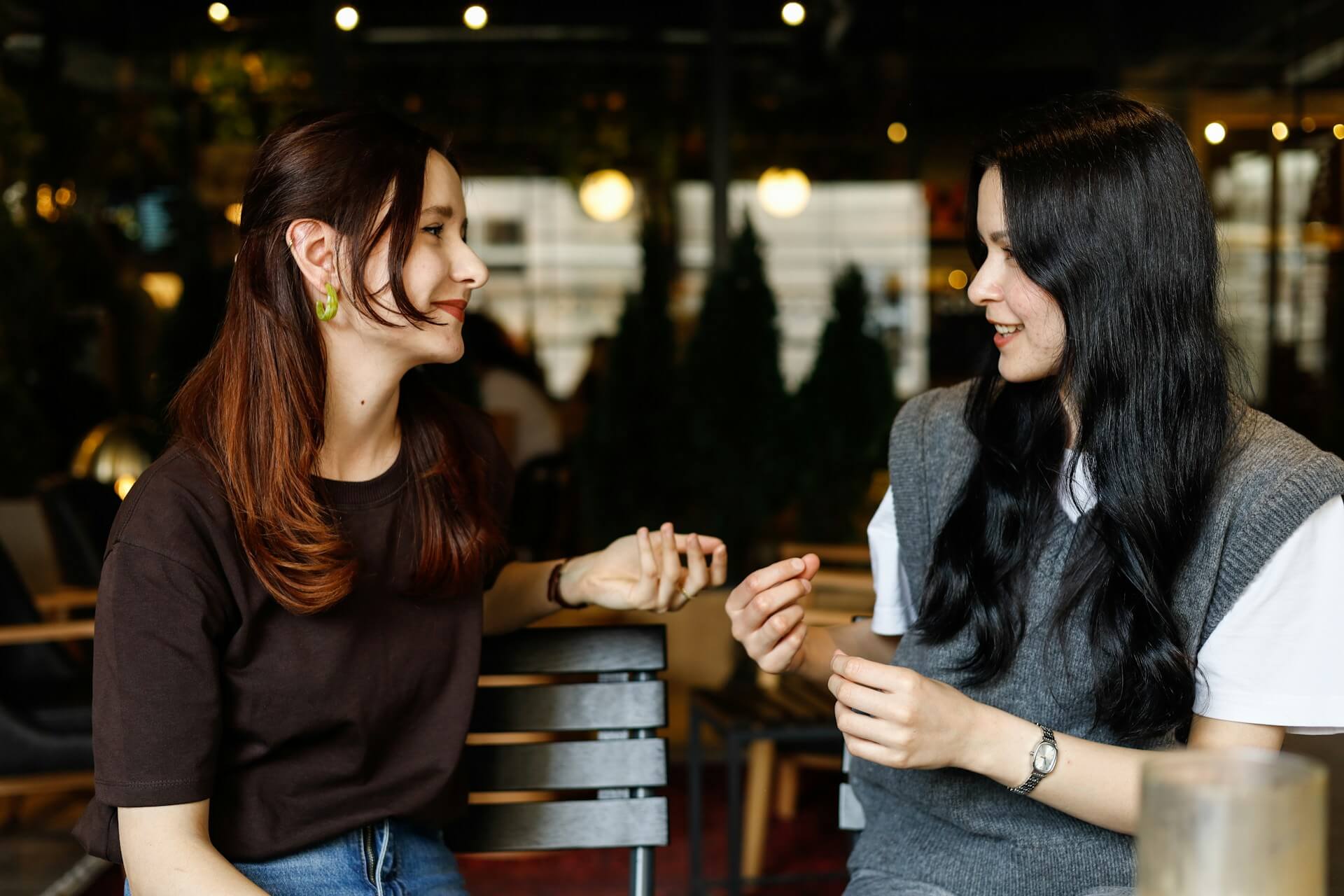Kira Asatryan (@KiraAsatryan) discusses the epidemic of loneliness felt by modern Americans — millennials in particular — and how it can be countered by closeness, the foundation of all happy and long-lasting relationships. She is the author of Stop Being Lonely: Three Simple Steps to Developing Close Friendships and Deep Relationships.
The Cheat Sheet:
- One in five Americans suffers from chronic loneliness (and among millennials, the percentage is even higher). Time Magazine slates it as the next big public health crisis.
- Because loneliness isn’t as readily identifiable as depression, many — especially men — choose to suffer it in silence.
- Cultivating close relationships with others counters this loneliness, and it’s a skill that can be learned rather than an inherent quality that only the lucky few possess.
- What is loneliness? What is closeness?
- How does social media — in spite of keeping us in touch with possibly hundreds or thousands of people — exacerbate loneliness for many?
- And so much more…
[aoc-subscribe]
The issue of loneliness matters because one in five Americans — that’s 60 million people — suffer from chronic loneliness. Among millennials, the numbers are even more dramatic: nearly 60 percent of those aged 18–34 questioned spoke of feeling lonely often or sometimes, compared to 35 percent of those aged over 55. According to Time Magazine, loneliness is poised to be the next big public health crisis.
In episode 504 of The Art of Charm, we talk to Kira Asatryan, author of Stop Being Lonely: Three Simple Steps to Developing Close Friendships and Deep Relationships about how we can counter loneliness by cultivating closeness with others in all relationships — whether they’re romantic, platonic, familial, or business.
More About This Show
No matter our generation, no matter what we do for a living, and no matter our relationship status, most of us have experienced loneliness at some time or another. Now, more than ever, a greater percentage of the populace is experiencing it regularly — but it’s a problem that is rarely discussed. The average American has only 2.08 people with whom they feel they can discuss matters of importance, and this number has dropped by almost a third since 1985.
In fact, respondents to an American Sociological Review survey who said they had no one to talk to about matters of importance have more than doubled — to 25 percent. But it’s not so much a lack of people in our lives that is the issue, according to Kira Asatryan, author of Stop Being Lonely: Three Simple Steps to Developing Close Friendships and Deep Relationships. It’s a lack of feeling that speaks to the heart of this new loneliness.
Sometimes it’s being surrounded by the very people you should be close to — family and friends, alike — that exacerbates loneliness because you feel misrepresented and misunderstood. If even these people don’t “get” you, you reason, what hope do you have of ever being truly close to anyone?
“I spent about two years researching really just relationships in general,” says Kira. “The question that I wanted to answer — both for myself and in the book — was: ‘What makes people feel close to one another?’ Because the idea of having friends is too amorphous for me, personally. I wanted to understand what made a friend a close friend.”
Ideally, we should strive to have between one and five close friends. “If you have zero,” says Kira, “that can cause emotional stress that is actually quite bad for you. And when you have more than five, it tends to [bear] diminishing returns, because these relationships take a lot of effort to maintain.”
A lot of us use social media as a surrogate for friendship, but it doesn’t create the same sense of connection as more traditional means of communication and interaction. “Essentially we feel like we have more people in our lives than we really do,” Kira says, “and social media is very good at convincing us that we have people to turn to because people will ‘like’ our posts. But it’s just not the same thing. Our brains aren’t really wired to think of relationships like that.”
Kira also points out that when we notice people not replying or reaching out to us on social media, it feels like a rejection — further exacerbating the loneliness.
What Kira learned during her research (besides how researching loneliness for two years can induce feelings of loneliness) is that cultivating closer and deeper friendships is a skill that can be learned rather than an inherent quality that only the lucky few possess. “My definition of closeness is direct access to another person’s inner world,” says Kira, “and it’s created through two things: knowing and caring. Knowing means essentially knowing what’s going on with somebody in a slightly deeper way than we usually do, and caring is showing them that you actually care about what’s going on with them.”
So how do we create closeness (which Kira stresses isn’t the same as love or even intimacy) to counteract this loneliness? For the first part — knowing others — we can begin by asking questions that go beyond the superficial (e.g., What are you working on? What are you doing this weekend? Did you see the game?) “There are ways to ask questions that are not intimidating and not interrogative that take the conversation one layer deeper into what essentially is motivating you to do the things that you’re doing.” Instead of being about logistics, it starts to become about feelings.
For instance, if you were to ask someone what they were doing this weekend and they told you they were going sailing, you could follow up with something like, “Oh! What do you like about sailing?” This is more personal than asking “Where are you going sailing?” or “Who are you going with?” You’re really getting to what sailing means to the person in a deeper way — what they’re feeling — rather than just asking more surface, logistics-related questions. “And then you’re starting to actually understand the person and not the event of going sailing,” says Kira.
When choosing who you want to know better, you’re probably already demonstrating the second part of closeness — caring. But this is a good time to point out that you can’t authentically — nor should you try — to be close to everyone. “There’s a term you may have heard of called spiritual bypassing,” says Kira. “It’s my favorite term ever. It’s about these people who just jump straight to spiritual guru to actually not deal with real stuff.” That is, some people try to go deep as they get to know others, but what they really care about is distracting themselves from whatever imperfections burden their own lives.
So if you can’t be close with everyone, who should be your focus? Kira suggests starting with “traditional” close relationships — like a spouse or a romantic partner, siblings, and parents. Branching out to friends you already have and even people you’ve worked alongside for years isn’t too much of a stretch, but it may involve showing vulnerability and overcoming fear of rejection — in other words, be prepared to step out of your comfort zone. “That has to be part of it,” says Kira.
Get organized about how the people in your life measure up in terms of closeness. Quickly jot down four lists:
- Those you know well.
- Those you feel know you well.
- Those you care about.
- Those you feel care about you.
This will help you identify opportunities where you can create more knowing and caring in your current relationships.
Next, envision how you can meet new people with whom you can get close. Have you met anyone new this year with closeness potential? If so, how could you approach them? If not, how could you expand your circle?
Another hindrance to human closeness in the 21st century is technology. To minimize the amount that personal technology is getting in the way of creating deep relationships, limit your device time that still works with your lifestyle. Some ideas:
- Device Bedtime — Turn your devices off after 9:00 each evening.
- Device Sabbath — Turn your devices off on Saturdays or Sundays (or any other day that feels right to you).
- Device Sabbatical — Take a full week off from technology once or twice a year.
Listen to this episode of The Art of Charm in its entirety to learn more about how to lessen loneliness — if not for yourself, then for those around you who might benefit from knowing they’re not as isolated and alone as they might feel. Stop Being Lonely: Three Simple Steps to Developing Close Friendships and Deep Relationships is available now.
THANKS, KIRA ASATRYAN!
Resources from this episode:
- Stop Being Lonely: Three Simple Steps to Developing Close Friendships and Deep Relationships by Kira Asatryan
- Kira Asatryan’s website
- Kira Asatryan at Twitter
- Kira Asatryan at Facebook
You’ll also like:
On your phone? Click here to write us a well-deserved iTunes review and help us outrank the riffraff!




